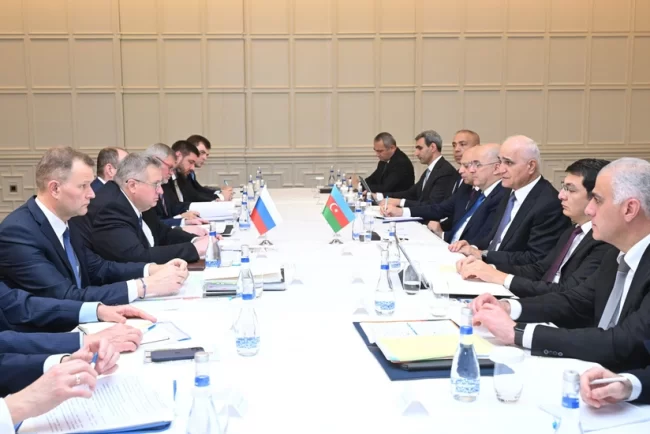
A meeting was held in Baku between Deputy Prime Minister of Azerbaijan Shahin Mustafayev and his Russian counterpart Alexey Overchuk, Report informs, referring to the Azerbaijani Cabinet of Ministers.
The sides discussed the current state and future prospects of Azerbaijan–Russia economic cooperation across various sectors.
It was noted that in 2024, trade turnover between the two countries increased by more than 10%, with this positive trend continuing into the current year. In the first eight months of 2025, mutual trade rose by 13.5% compared to the same period last year, reaching $3.35 billion.
Cargo volume along the North–South Corridor grew by 8.3% year-on-year (YoY) in the first nine months of 2025, with 10.4% attributed to road transport and 2% to rail.
Agricultural exports from Azerbaijan to Russia increased by 15% YoY in the first eight months of this year, with fruit and vegetable products accounting for 23% of that growth.
Both sides expressed satisfaction with the progress of joint projects in investment, industry, transport and transit, energy, customs, and other areas.
Special attention was given to strengthening transport links, particularly the development of the North–South International Transport Corridor. The importance of synchronizing infrastructure expansion along the corridor and ensuring sustained growth in cargo flows was emphasized.
The meeting also included discussions on effectively utilizing existing cooperation potential, expanding bilateral ties, and exploring new joint initiatives.
Additionally, the significance of the Azerbaijan–Iran–Russia trilateral meeting held in Baku was highlighted, with confidence expressed that the negotiations and decisions made would further strengthen cooperation in relevant sectors and benefit all three countries and the region as a whole.
Report
